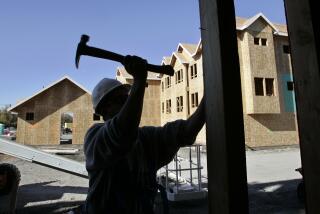Latino Children With Cancer and Their Families Find Respite at Picnic
- Share via
Rosario Alcatara watched the hundreds of Latino families relaxing on the grass around her Sunday in Pasadena’s Brookside Park and felt totally at home.
These families were sharing more than a summer afternoon picnic. All of them have a child with cancer, and they came to the park for a break from the grueling regimen of chemotherapy and radiation.
The 14th annual event was organized by Padres Contra El Cancer (Parents Against Cancer), a support group that assists more than 1,100 Latino families throughout Southern California who have a child with cancer.
Alcatara and her husband, Luis, a car mechanic, relied on the organization for help with Medicare forms and interpreting medical terminology when their son Luis Daniel was diagnosed with cancer of the retina as a baby. When he had to endure nine months of chemotherapy, they were bolstered by the support of other Latino parents who shared stories of their children’s survival.
“Everyone here has gone through what we’ve gone through,” Alcatara, 28, said in Spanish. “We understand each other.”
For months, the doctors believed that Luis Daniel would go blind. But the 3-year-old kept his sight in one eye, and Sunday he happily played with a toy car set he won at the carnival and picnic.
Padres Contra El Cancer, the only group of its kind in the Western United States, was created in 1985 by Myra Saltoun-Moran, a psychologist at Childrens Hospital Los Angeles who was concerned that cultural and language barriers were impeding the treatment of young Latino cancer patients. More than 65% of the pediatric patients and their families at the hospital are Spanish speakers.
Through a grant from the American Cancer Society, Saltoun-Moran studied the hospital’s patients and found that Latino families understood only about half of the basic information regarding their child’s treatment and disease, compared to Anglos, who understood about 97%.
“People were very isolated,” she said. “Parents weren’t complying with treatment, and doctors didn’t understand why.”
The group, which began with eight families at Childrens Hospital, now serves thousands of children and family members through bilingual support groups, crisis intervention and interpretation services. Its services include classes about cancer, a sibling day, bereavement counseling and emergency financial assistance.
Sunday’s picnic, which drew more than 1,000 people, is one of many activities the group organizes to provide a break for the young patients and a day for the entire family.
Laughter wafted across the park as children rode ponies, bounced giddily inside inflatable castles and played carnival games, including dunking the hospital’s head of radiation oncology.
“Gotcha!” shouted Ricky Rosas, 10, as he threw a ball that tripped a lever and sent a shivering Dr. Robert Lavey into the water. Rosas, who battled back cancer after a heavy dose of chemotherapy when he was 3, said the picnic is a good idea “because it makes kids happy.”
Over at the ring toss, 5-year-old Elizabeth Sanchez sat in her wheelchair and quietly examined a toy racetrack she won.
“These kids are in the hospital for so long, and this keeps their minds off the chemotherapy, off being stuck to an IV,” said her mother, Yolanda, 28.
Elizabeth is waiting for a prothesis to replace her leg, which was amputated when doctors discovered a malignant tumor in her bone. For her mother, talking with the other families in the organization has helped her navigate the terrifying world of medications and surgeries.
“Your mind just goes blank,” said Sanchez, describing how she felt two years ago when she learned her daughter had cancer. “It helps to share it with families who have gone through it, who know what you’re talking about.”
Cultural barriers, as well as language, have made it difficult for Latino families to cope with their children’s cancer, said Michael Velazquez, president of the organization.
Many families who are accustomed to visiting neighborhood clinics feel intimidated by the hospital’s bureaucracy. Some are scared to query the doctor when they have questions. Others, embarrassed by their limited English, do not ask for interpretation services.
“They tend to feel like families alone on an island,” he said. “Many would walk away from this experience emotionally and socially scarred without the work that we do.”
Eventually, the group is hoping to expand its services beyond Southern California, Velazquez said, and create a scholarship for cancer survivors.
“The importance of this is letting people know they’re not going through this . . . alone,” he said.
More to Read
Sign up for Essential California
The most important California stories and recommendations in your inbox every morning.
You may occasionally receive promotional content from the Los Angeles Times.










